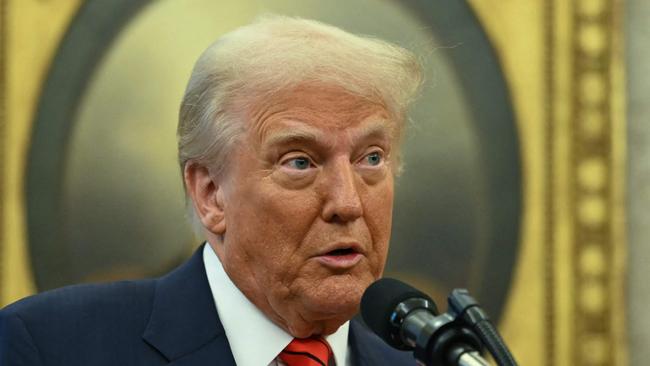Donald Trump’s Gaza plan has stumbled on the first day as White House moves into damage control


The White House is now frantically trying to rewrite, reinterpret and soften the President’s words to salvage something from a policy idea that has inflamed the Arab world and has been shunned even by America’s allies and by Trump’s own MAGA faithful.
On Wednesday, Trump declared that the US would take unilateral ownership of Gaza and move its two million Palestinians “permanently” to other countries, rebuild the destroyed enclave and might use US troops to achieve those aims.
Now, the White House says that any relocation of Palestinians out of Gaza would only be temporary, no US money would be used to rebuild Gaza and that there were no current plans to involve US troops.
We are watching a giant backflip unfold in real time here and it is likely to continue for some time as the White House tries to control the fallout from the President’s incendiary proposal.
The best that can be said about Trump’s Gaza plan is that it is a brazen opening gambit that shakes up conventional, stale and failed thinking on Gaza and pressures Arab states to confront their hypocrisy of the fate of Palestinians. These are not bad things. But, sadly, they are the only positive aspects of a presidential thought-bubble, which appears to have been embraced by no one except Israeli far-right leaders and settlers who would love nothing more than the complete expulsion of Palestinians from the Middle East.
The political costs of Trump’s Gaza proposal far outweigh any benefits. By failing – inexplicably – to clarify whether the removal of people from Gaza would be voluntary or forced, the President has exposed the US to claims that it seeks to use force, thereby perpetuating ethnic cleansing in clear breach of international law and decent international behaviour.
It is inconceivable that the US would seek to forcibly remove some two million Palestinians from Gaza, so why didn’t Trump make it clear that he was calling for Palestinians to leave Gaza voluntarily?
By also claiming he wanted these departures to be permanent, he fundamentally misjudged the history of the region, ignoring the deep-seated Palestinian attachment to a homeland. Through real-estate eyes, he made the mistaken assumption that for most Gazans a safer existence in a foreign country with a nice home would outweigh the importance of Palestinian self-identity.
This misjudgment has angered the Arab world and has put at risk Trump’s hopes of striking a historic deal with Saudi Arabia to normalise relations with Israel.
What’s more, by claiming, with no legal basis, that America would take ownership of Gaza, Trump undermines the notion of sovereignty around the world. It makes it harder for the US to take the moral high ground when criticising Russian leader Vladimir Putin’s invasion of Ukraine, or when warning China’s Xi Jinping that any move to forcibly take Taiwan would be a breach of international norms and morals.
What is most surprising about Trump’s Gaza plan is that it goes against everything he campaigned for in promising not to embroil the US in new conflicts in the Middle East, at a potential cost of the lives of US troops.
It’s not surprising to see that even Trump’s fellow Republicans are uneasy with this plan.
And who did Trump think was going to pay for the rebuilding of Gaza?
Trump said the US would own Gaza and lead the rebuilding of it. Yet a day later the White House said no US money would be used to rebuild the enclave.
The only way Trump was ever going to convince Arab nations to accept huge numbers of Palestinians was by paying them a tonne of money and other enticements to do so. If that is not forthcoming, then they are hardly likely to overturn their strident opposition to the idea.
However, Trump’s unconventional thinking on the Middle East should not always be criticised simply because it is unconventional. He has foreign policy successes to his name because of it, including the 2020 Abraham Accords that normalised Israel’s relations with several Middle East countries.
Trump has also been quicker than the Democrats to understand the dark heart of Iran’s ruling mullahs and the need to keep maximum pressure on Tehran. But with his Gaza proposal, he has miscalculated. The challenge now will be to massage this unworkable idea into something more practical that can eventually be used constructively to help set Gaza on its long path to recovery.



It has taken less than 24 hours for the wheels to fall off Donald Trump’s Gaza plan, as a tsunami of opposition to the idea swells around the world and lays bare the impossibility of his vision as it currently stands.